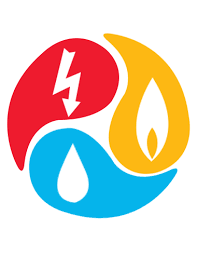In today’s competitive business landscape, choosing the right gas and electricity suppliers is crucial for ensuring operational efficiency and cost-effectiveness. Navigating the market to find the best suppliers can be daunting, given the myriad options available and the complexities involved in evaluating them. This guide aims to provide businesses with a comprehensive framework for identifying and selecting the most suitable gas and electricity suppliers to meet their specific needs.
Understand Business Energy Needs
Before embarking on the journey of selecting gas and electricity suppliers, businesses need to gain a clear understanding of their energy needs. Different types of businesses have varying energy requirements based on size, industry, and operational activities. Conducting an energy audit can help businesses assess their current consumption patterns and identify areas for improvement. Factors such as peak demand periods, seasonal variations, and future growth projections should also be considered to ensure that the selected suppliers can adequately meet the business’s energy needs.
Researching Gas And Electricity Suppliers
Once businesses have a clear understanding of their energy requirements, the next step is to research the available gas and electricity suppliers in the market. This involves gathering information about the various suppliers’ offerings, services, pricing structures, and contract terms. Business owners can start by exploring online resources, industry publications, and supplier websites to gather initial information. Additionally, reaching out to industry peers and networking within relevant professional communities can provide valuable insights and recommendations. It’s essential to compile a list of potential suppliers and systematically evaluate each one based on criteria such as reliability, reputation, pricing, and customer service.
Evaluating Supplier Reliability And Reputation
One of the most critical factors to consider when choosing gas and electricity suppliers is their reliability and reputation. Businesses rely on a consistent and uninterrupted supply of energy to maintain operations, making supplier reliability a top priority. Before finalizing any agreements, it’s essential to thoroughly research the track record of potential suppliers, including their uptime statistics, response times to outages or emergencies, and overall customer satisfaction ratings. Customer feedback and testimonials can provide valuable insights into the quality of service provided by suppliers, helping businesses make informed decisions. Additionally, reviewing industry ratings and certifications can offer further assurance of a supplier’s reliability and adherence to industry best practices.
Considering Energy Efficiency And Sustainability
In today’s environmentally conscious business environment, energy efficiency and sustainability are increasingly important considerations when choosing business gas and electricity suppliers. Businesses are under pressure to minimize their carbon footprint and reduce energy consumption to mitigate environmental impact and comply with regulatory requirements. When evaluating suppliers, businesses should inquire about their commitment to renewable energy sources, energy efficiency programs, and sustainability initiatives. Choosing suppliers that prioritize environmental responsibility not only aligns with corporate social responsibility goals but can also result in long-term cost savings through reduced energy consumption and potential incentives or rebates for adopting sustainable practices.
Negotiating Contracts And Terms
Negotiating favorable contract terms is a critical step in selecting gas and electricity suppliers that offer the best value for businesses. Pricing structures, contract lengths, and terms and conditions can vary significantly among suppliers, making it essential for businesses to carefully review and negotiate these aspects to ensure a mutually beneficial agreement. Before entering into negotiations, businesses should conduct thorough research to understand market rates, industry standards, and potential negotiation leverage points. It’s essential to clarify all pricing components, including unit rates, fixed fees, variable charges, and any additional costs or surcharges that may apply. Businesses should also pay attention to contract terms such as termination clauses, renewal options, and service level agreements to avoid any surprises or disputes down the line. Engaging in open and transparent communication with suppliers and seeking competitive bids can help businesses secure the most favorable terms possible.
Implementing Supplier Selection Process
After conducting thorough research, evaluating potential suppliers, and negotiating contract terms, the final step is to implement the supplier selection process. This involves establishing clear criteria for supplier selection based on the business’s priorities, needs, and budgetary constraints. Businesses should develop a structured decision-making process that involves key stakeholders and ensures alignment with organizational goals and objectives. It’s essential to document all agreements and commitments made with selected suppliers and establish protocols for ongoing monitoring and performance evaluation. Regular reviews and audits should be conducted to ensure that suppliers are meeting their contractual obligations and delivering the expected level of service. By implementing a robust supplier selection process, businesses can minimize risks, optimize performance, and achieve long-term success in managing their energy needs.
Final Thoughts
Selecting the best gas and electricity suppliers for businesses requires careful consideration of various factors, including energy needs, supplier reliability, sustainability practices, and contract terms. By following the guidelines outlined in this guide, businesses can navigate the market with confidence and make informed decisions that support their operational efficiency, cost-effectiveness, and sustainability goals. With the right suppliers in place, businesses can power their success and thrive in today’s competitive business environment.
FAQs
How do I determine my business’s energy needs?
Conducting an energy audit can help assess your current energy consumption patterns and identify areas for improvement. Consider factors such as peak demand periods, seasonal variations, and future growth projections.
What should I look for when researching gas and electricity suppliers?
Look for information about suppliers’ offerings, services, pricing structures, and contract terms. Consider factors such as reliability, reputation, pricing, and customer service.
How can I negotiate favorable contract terms with suppliers?
Conduct thorough research to understand market rates and potential negotiation leverage points. Clarify all pricing components and contract terms, and communicate openly with suppliers to reach mutually beneficial agreements.

